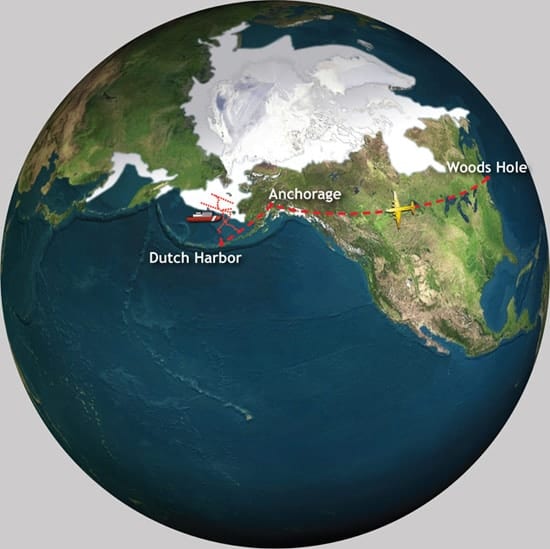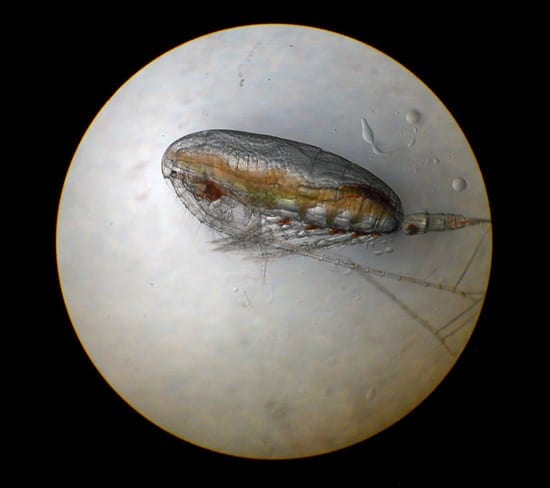Polar Discovery Online Expedition Brings Arctic Experience to Virtual Explorers
March 31, 2009
Beginning April 4, students, teachers, museum visitors, and virtual explorers can join a multi-institutional team of researchers led by Carin Ashjian of the Woods Hole Oceanographic Institution (WHOI) on a 38-day expedition in the Arctic’s Bering Sea.
Through interactive sessions at museums and daily dispatches, videos and photo essays on the Polar Discovery Web site — and now using Twitter — visitors can follow scientists aboard the U.S. Coast Guard Cutter Healy as they learn more about how the changing climate may affect the region’s enormously productive and vital ecosystem.
Each year, U.S. and Russian fishing fleets pull hundreds of millions of pounds of fish and crab from the Bering Sea. All that productivity is due to a particular combination of melting sea ice and currents, which transport nutrients that fertilize blooms of algae. Algae are food for tiny zooplankton, which are eaten by larger animals, and so on through the Arctic food web. Millions of seabirds breed in the region every summer, and whales travel from far away to feed in the abundant waters of the Bering Sea.
“To understand if the Bering Sea is going to continue to be a wonderful place for whales to live and feed, we have to try and understand how it works and then to try to predict how the changes in sea ice or water temperatures might impact it,” said Ashjian, a biologist at WHOI and chief scientist on the expedition.
Researchers will be looking at many parts of the ecosystem — fish, seabirds, marine mammals and even humans — to help answer critical questions about how the changing climate may affect the delicately balanced ecosystem in this part of the world.
The team will also conduct live satellite phone conversations from the ship to visitors at partner museums across the United States. Through these “Live from the Poles” events, students and other visitors will have the opportunity to interact directly with researchers while they are working in the field. A list of partner museums and a schedule of “Live from the Poles” events can be found on the Polar Discovery Web site at http://polardiscovery.whoi.edu.
Polar Discovery is funded through a grant from the National Science Foundation and the Richard King Mellon Foundation.
The Woods Hole Oceanographic Institution is a private, independent organization in Falmouth, Mass., dedicated to marine research, engineering, and higher education. Established in 1930 on a recommendation from the National Academy of Sciences, its primary mission is to understand the oceans and their interaction with the Earth as a whole, and to communicate a basic understanding of the oceans’ role in the changing global environment.


